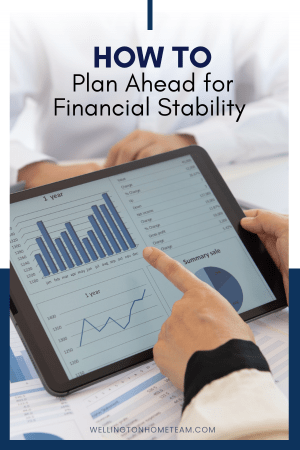
Financial Tips for First-Time Homebuyers with Urgent Costs
Purchasing your first home is an exhilarating milestone—it’s a step toward independence, security, and a space to call your own. But, alongside the excitement often comes a flood of expenses that can feel overwhelming. From the cost of moving to surprise repairs, first-time homebuyers frequently face financial demands they may not have prepared for.

These immediate costs are unavoidable, but with careful planning and smart financial strategies, you can manage them effectively without compromising your financial stability. This guide provides actionable advice to help first-time homebuyers stay on top of those immediate expenses and build a long-term financial plan for their new home.
Common Expenses First-Time Homebuyers Encounter
The thrill of getting the keys to your new home can quickly evaporate when the expensive reality of making a new home liveable becomes a pressing need. While having a down payment or mortgage approval feels like you may have cleared the biggest hurdle to a happily-ever-after home, post-purchase costs can often catch first-time buyers off guard. Here are some of the most common expenses:
1. Moving Costs
Hiring movers, renting moving trucks, or even just purchasing boxes and supplies can add up quickly. Depending on the distance, hiring a professional moving company can cost hundreds—or even thousands—of dollars.
2. Essential Repairs
These are not the aesthetic updates you might have planned but urgent repairs that affect safety and functionality. Broken plumbing, leaky roofs, or faulty wiring demand immediate attention, leaving little to no room for delay.
 3. Utility Fees
3. Utility Fees
New homeowners are often surprised by additional costs like utility deposits, activation fees, or even unexpectedly high first-time bills. Some older or larger homes can have higher utility needs than initially anticipated.
4. Basic Furnishings
Even if you’re bringing furniture from your previous residence, chances are you’ll need additional items to adapt to your new home’s needs. Essentials like curtains, kitchen appliances, or even light fixtures can quickly add strain to your budget.
5. Maintenance and Upkeep
It’s easy to overlook the ongoing costs of maintaining a home, such as lawn care, pest control, and other regular upkeep. These expenses can add up significantly over time.
6. Homeowners Insurance and Property Taxes
Protecting your investment by taking out homeowners insurance is essential, but the cost can vary greatly depending on your location and coverage needs. Additionally, property taxes are an ongoing expense that first-time buyers should factor into their budgets.
7. Homeowners Association (HOA) Fees
If your new home is part of a community with an HOA, you may be required to pay monthly or annual fees. These can cover shared amenities like swimming pools, gyms, or landscaping, but they can also add an unexpected recurring cost to your financial obligations.
Smart Financial Strategies to Manage Immediate Expenses
Taking control of your finances starts with preparation and a focus on essential needs. Strategic decisions now could save you from long-term financial strain. Here’s how to do it:
1. Create a Budget and Prioritize Needs
The first step is to plan your immediate expenses carefully through a detailed and realistic budget. Start by ranking expenses in order of urgency. Essential repairs related to the safety of residents (like fixing a lock or electrical hazard) should always come first, followed by essential furnishings and utility payments.
Once your priorities are clear:
- Stick to your budget strictly to avoid overspending on non-essential items.
- Track every dollar spent to ensure you stay on track.
Budgeting acts as a safeguard against financial surprises. Even within a modest financial plan, clear prioritization ensures that the essentials are dealt with first.
2. Explore Financial Products for Support
If immediate expenses exceed your current savings, financial products can help provide relief. A $2,000 loan, for instance, can help new homeowners cover essential costs like minor repairs or moving expenses without overburdening monthly budgets.
Here are a few options:
- Personal Loans: These can provide quick access to funds for urgent expenses, often with fixed repayment schedules, so you can plan your budget more effectively.
- Credit Cards with Low Interest Rates: Responsible use of credit cards can help homeowners handle smaller costs like utility fees or furnishing essentials. Look out for promotional offers like 0% APR for the first few months.
Tip: Avoid borrowing beyond what you can repay comfortably and opt for low-interest or fixed-payment options to maintain financial peace of mind.
3. Negotiate Where Possible
Before committing to services like movers or home repair contractors, don’t hesitate to shop around. Many vendors offer competitive pricing or discounts for first-time homeowners. Collect multiple quotes to compare and leverage the opportunity to negotiate.
For example:
- Ask movers for reduced rates on off-peak moving days.
- Look for repair contractors who offer package deals, like inspections plus immediate fixes.
Negotiation is an often-overlooked way to save, particularly for first-timers.
4. Avoid Financial Pitfalls
While financial tools and loans are helpful, misuse can lead to long-term debt. Here are several common pitfalls to steer clear of:
- Overspending on Non-Essentials: Tempted to furnish the whole house at once? Delay the purchase of items that aren’t necessary.
- Ignoring Small Repairs: Small repairs like fixing a dripping faucet might seem unnecessary, but can snowball into much larger (and costlier) problems.
- Misusing Credit: Avoid spending on non-essential improvements with high-interest credit that can lead to unmanageable balances.
Planning Ahead for Financial Stability
Once immediate expenses are under control, it’s time to plan for a more stable financial future in your new home. Building a strong financial foundation now will ensure you’re prepared for whatever unplanned costs arise down the line.
1. Build an Emergency Fund
Life in a new home brings ongoing costs, so aim to set aside a percentage of your income every month for emergencies. Even starting with 5% of your income can build a cushion over time – literally every cent helps. This fund will help you handle situations like unexpected repairs without relying on loans or credit cards.
 2. Invest in Home Insurance
2. Invest in Home Insurance
While some forms of insurance may have been required for your mortgage, look into additional coverage to protect major systems or appliances. For example, a home warranty might cover HVAC systems or plumbing failures. While there’s an upfront cost, having access to long-term savings during a crisis is worth it.
3. Plan for Future Maintenance
To avoid being caught off guard, proactively budget for annual or biannual maintenance. Whether it’s repainting, resealing gutters, or HVAC servicing, regular maintenance reduces the likelihood of major expenses in the future.
4. Reassess and Adjust
Lastly, make it a habit to revisit your budget as your circumstances evolve. Shift funds as necessary to prioritize savings and upcoming projects. Over time, this habit ensures you remain prepared for both expected and unexpected costs.
Take Charge of Your First Home’s Finances
Buying your first home is a momentous achievement, but it can also be financially challenging. By preparing for common expenses and following smart financial strategies, you can alleviate unnecessary stress—and even enjoy the process of turning your house into a home.
From carefully prioritizing repairs to considering loans for immediate costs, these practical steps will ensure you take charge of your financial health. Remember, a well-executed plan not only tackles today’s challenges but also builds the foundation for future stability. With a clear budget, smart planning, and an eye on long-term goals, your first homeownership experience can be a joy rather than a strain.
Turn your new house into a home with confidence. Start crafting your financial stability—because peace of mind is the most valuable investment you’ll ever make.
Please consider spreading the word and sharing; Financial Tips for First-Time Homebuyers with Urgent Costs
About the Author
Top Wellington Realtor, Michelle Gibson, wrote: “Financial Tips for First-Time Homebuyers with Urgent Costs”
Michelle has been specializing in residential real estate since 2001 throughout Wellington Florida and the surrounding area. Whether you’re looking to buy, sell or rent she will guide you through the entire real estate transaction. If you’re ready to put Michelle’s knowledge and expertise to work for you call or e-mail her today.
Areas of service include Wellington, Lake Worth, Royal Palm Beach, Boynton Beach, West Palm Beach, Loxahatchee, Greenacres, and more.







